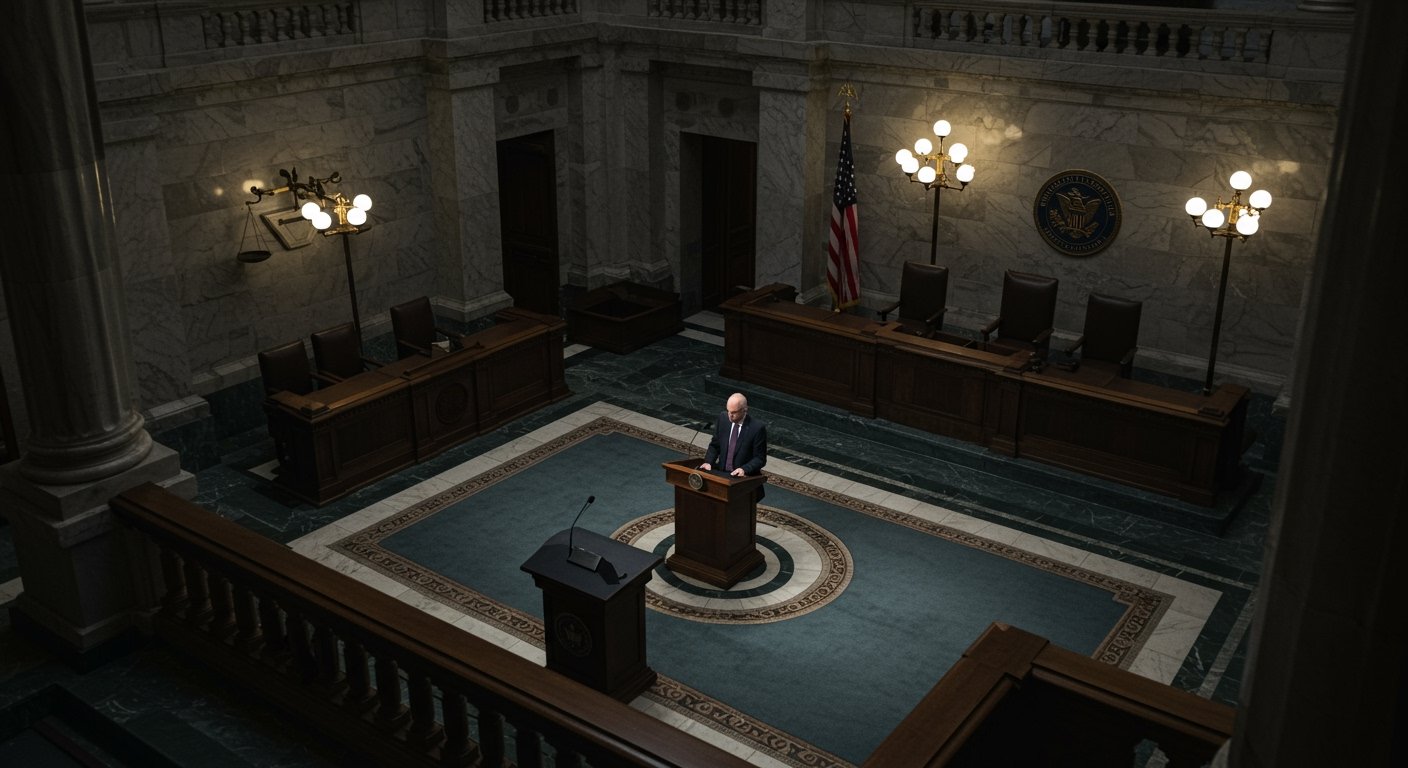In a suburban Philadelphia courtroom, a man accused of the fatal shooting and beheading of his father testified that the gruesome act was part of a failed attempt to perform a “citizen’s arrest.” Justin D. Mohn, 33, is currently undergoing a bench trial before a judge for the death of his father, Michael F. Mohn, which occurred on January 30, 2024, in Pennsylvania. The younger Mohn told the court the killing was a desperate measure, labeling it as “Plan B” after his initial effort to arrest his father proved unsuccessful.
Defendant’s Testimony and Claims
Testifying without a jury present, Mohn elaborated on his unusual defense. He claimed his father, Michael F. Mohn, had made false statements and committed treason in connection with an unrelated civil case Justin Mohn had initiated in federal court. It was in an attempt to enforce accountability for these alleged actions, Mohn asserted, that he sought to carry out a citizen’s arrest on his father. When this attempt failed, according to his testimony, he resorted to the violent act that led to his father’s death.
Mohn also freely admitted to capturing the aftermath of the killing on video and subsequently posting a 14-minute recording of the beheading on the online platform YouTube. He stated that he believed a severed head displayed in this manner “would not only go viral but could lessen the violence” in some broader context, suggesting an intent to use the shocking imagery to achieve a wider impact or draw attention to his grievances.
Beyond the immediate context of the alleged citizen’s arrest, Mohn offered multiple other purported motivations for his actions. He claimed that his father was actively trying to prevent him from pursuing a political career, specifically mentioning that his father sought to stop him from becoming a politician akin to US President Donald Trump. Furthermore, he stated that the beheading was intended to convey a strong message demanding resignations from federal government workers and advocating for the cancellation of all public debt. These wide-ranging and seemingly disparate claims paint a complex picture of the defendant’s state of mind and perceived justifications.
The Crime and Subsequent Events
Prosecutors presented a starkly different account focused on the brutal reality of the crime itself. They told the court that Justin Mohn first shot his father with a new pistol. Following the shooting, they stated, he proceeded to decapitate the victim using both a kitchen knife and a machete. This account aligns with the visual evidence the prosecution intended to present during the trial.
The sequence of events did not end with the killing. After the murder, Mohn traveled to Fort Indiantown Gap, a military installation. His attempt to gain entry or evade capture there culminated in his arrest after he scaled a fence. The arrest brought an end to the immediate flight from the scene.
Evidence Presented in Court
Key evidence introduced by the prosecution includes graphic photos of the crime scene and the disturbing YouTube video Mohn admitted to posting. These exhibits are central to establishing the nature and circumstances of Michael F. Mohn’s death and the defendant’s actions immediately following it. The court must weigh this evidence against the defendant’s claims of motive and intent.
Competency and Prior Behavior
The legal proceedings were preceded by a competency hearing held last year. The outcome of that hearing determined that Mohn was indeed competent to stand trial, meaning he was deemed to understand the charges against him and capable of assisting in his own defense. This finding was made despite information brought forward by a defense expert. According to this expert, Mohn had, at one point, written a letter to Russia’s ambassador in Washington, seeking refuge in Russia and apologizing to President Vladimir Putin. While this detail was noted, it did not ultimately lead to a finding of incompetence that would have halted the trial.
As the bench trial continues in the suburban Philadelphia courtroom, the judge is tasked with evaluating the harrowing evidence and the defendant’s extraordinary claims to determine culpability in the death of Michael F. Mohn on January 30, 2024. The case highlights the severe consequences of the events that unfolded in Pennsylvania and the complex legal and psychological factors at play.












